|
Getting your Trinity Audio player ready...
|
Introduction
The license of Ghana’s largest satellite television provider, MultiChoice, could be revoked on Aug. 7, 2025, if its management does not revise its prices.
The country’s Communications Minister, Sam George, has directed the National Communications Authority (NCA) to revoke the South African-based company’s license without delay if its prices on the market do not drop.
The cause of the public spat between MultiChoice and the Minister:
A price comparative analysis conducted by Ghana’s Communications Ministry into MultiChoice‘s operation and price regime in the West African sub-region revealed that the country’s customers, on average, pay more than their neighbours.
“I have considered levels of taxation, depreciation of currencies, and population of markets and come to the firm conclusion that Ghanaians are being charged an unfair and unreasonable price for the bouquets on DSTV Ghana,” the minister wrote on X on Aug. 1, 2025.
A screenshot of the price analysis Ghana’s Communications Minister shared
Sam George is asking for a 30 per cent reduction of MultiChoice’s prices on the market to reflect the country’s economic conditions.
See the minister’s comment from minutes 0:32 to 2:23 of the YouTube video posted by Accra-based ChannelOne TV.
Without mincing words, Sam George said he had directed the country’s broadcasting and communications regulator, the NCA, to revoke MultiChoice’s license if it fails to revise its prices.
“@NCAGhana would act to protect Ghanaian consumers if no consideration is made to reduce prices,” the minister said.
MultiChoice’s response to Ghana’s Communications Minister:
In a reply to Sam George, the multinational company expressed surprise at the Minister’s stance, describing it as “regrettable.”
MultiChoice’s response to the Ghanaian minister’s revocation threat:
While acknowledging the gains the country’s currency, the Cedi, has made on the international financial market, MultiChoice said it could not reduce the DStTv subscription fees in the manner the minister suggested.
“MultiChoice remains committed to constructive engagement with the Honourable Minister and to complying with all applicable laws and regulations in Ghana and trusts that the authorities will do likewise,” the company’s Aug. 3, 2025, reply said.
In a terse response to the company’s statement, Sam George said MultiChoice has vindicated his “earlier position that they simply do not take the Ghanaian people seriously enough.”
MultiChoice Nigeria reduced its prices after court action:
Sam George accused the multinational company of lowering its prices in Nigeria after authorities sued it over price hikes.
“The same Group operating in Nigeria reversed price increases in Nigeria when the Nigerian authorities sued them. The Nigerian House of Representatives took the matter up and ordered a suspension of the increases. They complied,” he said.
MultiChoice Nigeria reportedly increased its subscription fees for its DStv and GOtv packages by up to 25% on March 1, 2025, blaming it on “inflation and rising operational costs.”
Punch Nigeria reported that “The price hike saw DStv Compact move from ₦15,700 to ₦19,000, Compact Plus from ₦25,000 to ₦30,000, Premium from ₦37,000 to ₦44,500, and GOtv Supa Plus from ₦15,700 to ₦16,800.”
However, the West African country’s Federal Competition and Consumer Protection Commission (FCCPC) fiercely opposed the price hikes, which led to the suspension of the new price implementation.
The company sued the FCCPC, asking the Federal High Court in Abuja to uphold its new DStTv and GOtTv prices.
However, in its May 8, 2025, decision, the court dismissed MultiChoice’s suit, describing it as an “abuse of court process.”
It, however, held that Nigeria is a free-market economy, and except for the President, no one has the “exclusive power to regulate prices and set up a price control board against any defaulting foreign companies or regulated goods and services,” as reported by Nairametrics.
The two parties are before the Court of Appeal in Abuja over aspects of the Federal High Court’s decision.
What does Ghana’s law say about the revocation of licenses?
Ghana’s laws do not envisage the revocation of a broadcasting or communication company’s license over its prices in the market.
Section 13 of the country’s Electronic Communications Act, 2008 (Act 775) provides that, where a licensed company,
- Fails to comply materially with Act 775, regulations, or the terms of its license, or frequency authorisation,
- Fails to comply materially with a lawful direction of the NCA,
- Defaults in the payment of prescribed fees, or penalty or money imposed under Act 775 or Regulations
- The revocation or suspension is needed in the public interest,
- When a Court or the Registrar-General orders the winding up of the company, and
- Ceases to operate the communication network assigned to it.
The law provides that before a company’s license is revoked, it has to be given 30 days in writing, specifying the grounds for that.
“The Authority shall, before exercising the power of suspension or revocation under this section, give the licensee or the authorisation holder thirty days notice in writing of its intention to do so and specify in the notice the grounds on which it proposes to suspend or revoke the licence or the frequency authorization,” Section 13(2) of Act 775.
Also, the Electronic Communications Regulations, 2011 (L.I. 1991) law does not empower the NCA to revoke a broadcasting company’s license because of the prices of its services or products.
Therefore, the legal basis for Communications Minister Sam George’s threat to revoke MultiChoice’s license over its DSTV and GOTV prices is unclear.
Conclusion
MultiChoice has yet to reduce its prices as Sam George directed with barely 24 hours to Aug. 7, 2025. Ghanaians are watching with bated breath to see if the minister or the NCA will carry through the threat.






